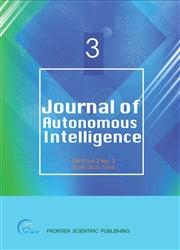Fuel automata: Smart fuel dispenser using RFID technology and IoT-based monitoring for automotive applications
引用次数: 1
Abstract
In the modern era, time holds immense value, and individuals strive to avoid delays in their daily responsibilities. These fuel stations are time-consuming and rely on human labour for efficient operation. With each passing day, the number of vehicles and devices in our technologically advanced world continues to grow rapidly. As a result, customers wait in queues at fuel stations, fuelling their desire to transition to an automated fuel dispensing system and eliminate the manual fuel distribution process from their daily routines. This research paper introduces an innovative smart fuel dispenser system that leverages RFID technology and IoT-based monitoring to enhance automotive fuelling processes. By addressing the limitations of conventional fuelling systems, this proposed system provides a superior solution that is more efficient and effective. Notably, it offers numerous benefits, such as improved accuracy, efficiency, safety, and sustainability, thereby presenting potential cost savings for fuel station owners and operators. The ongoing project is focused on automating fuel dispensing stations using RFID technology as a highly efficient tool. This approach aims to reduce the traffic congestion typically seen in front of fuel stations by shortening the time required for fuel dispensing compared to traditional manual operations. To enhance control and monitoring capabilities, an Android application has been created. This app allows for the tracking of fuel transactions and transaction history for both customers and fuel station dealers. The system utilizes NodeMCU and the Android app as an Internet-of-Things platform for seamless communication between the system, customers, and dealers. This study presents concrete evidence that supports the viability and potential advantages of the proposed system, emphasizing its capacity to revolutionize the fuelling industry and mitigate carbon emissions. The findings derived from the implemented system have been thoroughly examined, offering an intelligent solution for a sustainable future.燃油自动机:使用RFID技术和基于物联网的汽车应用监控的智能燃油加油机
在现代,时间有着巨大的价值,人们努力避免在日常工作中拖延时间。这些加油站耗时耗力,而且要靠人力才能高效运转。随着每一天的过去,在我们这个技术先进的世界里,车辆和设备的数量继续迅速增长。因此,顾客在加油站排队等候,促使他们希望过渡到自动化燃油分配系统,并从日常生活中消除人工燃油分配过程。本研究报告介绍了一种创新的智能加油机系统,该系统利用RFID技术和基于物联网的监控来提高汽车加油过程。通过解决传统燃料系统的局限性,该系统提供了一种更高效、更有效的优越解决方案。值得注意的是,它提供了许多好处,例如提高准确性、效率、安全性和可持续性,从而为加油站所有者和运营商节省了潜在的成本。正在进行的项目重点是使用RFID技术作为高效工具实现加油站的自动化。与传统的人工操作相比,这种方法的目的是通过缩短加油所需的时间,减少加油站前的交通拥堵。为了增强控制和监控功能,我们创建了一个Android应用程序。这个应用程序允许客户和加油站经销商跟踪燃料交易和交易历史。该系统利用NodeMCU和Android应用程序作为物联网平台,实现系统、客户和经销商之间的无缝通信。这项研究提供了具体的证据来支持该系统的可行性和潜在优势,强调了其革新燃料行业和减少碳排放的能力。从实施的系统中得出的结论经过了彻底的审查,为可持续的未来提供了一个智能的解决方案。
本文章由计算机程序翻译,如有差异,请以英文原文为准。
求助全文
约1分钟内获得全文
求助全文

 求助内容:
求助内容: 应助结果提醒方式:
应助结果提醒方式:


